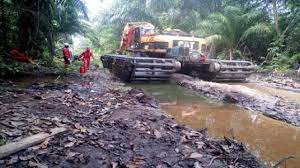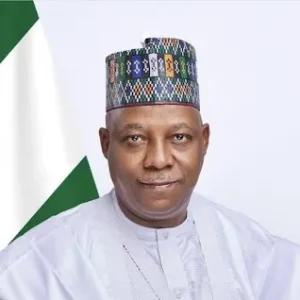
The National Oil Spill Detection and Response Agency (NOSDRA) has attributed the delays in the cleaning of oil spillage and other environmental degradation in the country to poor cooperation of the host communities.
The Acting Director in the Department of Planning, Policy, Analysis and Research, Dr Sola Oladipo, said this recently in Akure, during the phase 2 community-based Disaster Risk Reduction plan (DRR plan) on the dangers of pipeline vandalism and resultant environmental pollution.
Shedding more light on the recurring environmental disaster in the Niger Delta region, he said many communities do attach emotions to oil spill events thereby causing delays in the cleanup process.
Dr Oladipo, who denied allegations that the agency delayed the cleanup process in the affected areas in the country, said most community leaders need persuasion to join in the joint investigation visit.
According to him, the agency, sometimes, resorted to educating the community of the consequences of allowing the spill to remain in the community for too long.
“The agency does respond promptly to the oil spill report although we face some challenges. We don’t delay the cleanup process. Oil spillage is an incident that touches our emotions as government, community and environmentalists.
“We face some challenges like not having the cooperation of the communities to join us and conduct joint investigation visits.
“It took us some time to get people together to understand the need to allow the cleanup process to begin. That is what is causing little delay,” he said.
The Director-General of NOSDRA, Idris Musa, said there was a need to organise town hall meetings to create awareness on the dangers of pipeline vandalism in the Niger Delta region.
Musa, who was represented by NOSDRA Director, General Services, Aliyu Shehu Ringim, stated that the roles and responsibilities of various stakeholders should be identified and harmonised in addressing the menace of the oil spills.
He explained that the DRR plan would be community-driven, community-implemented and monitored in which the host and transit communities hold themselves responsible for the advocacy and protection of the environment.
Ondo State Governor, Oluwarotimi Akeredolu, listed the havoc that oil spillage had caused to the riverine people of the state, saying it has drastically destroyed the economic and social livelihood of the people.
Akeredolu expressed willingness to cooperate with the agency to remove all bottlenecks against its operation in the areas, appealing to NOSDRA to further explore ways to tackle challenges posed by oil spillage in the state.







